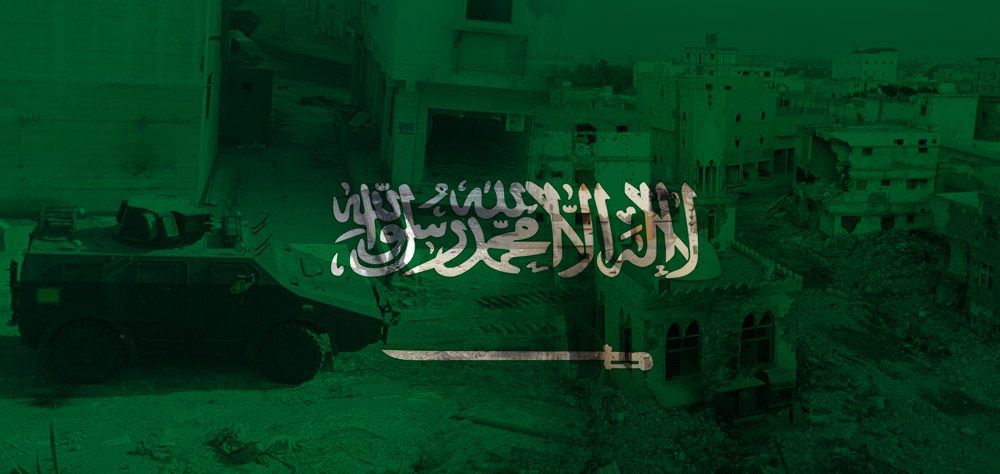Alwaght- The Shiite communities of Saudi Arabia are economically impoverished despite the fact that the Persian Gulf Arab kingdom is the world’s top oil exporter.
When it comes to the cultural and social taking, the government treats the Shiites like second-class citizens. For example, the courts do not consider valid their testimony, or a Shiite cannot marry a Sunni Muslim according to the state’s law. They also face restrictions on performing religious rituals. The Saudi government denies them authorization to build new mosques or Hussainyas, the Shiite commemoration halls, nor does it allow them to broadcast azan, the official prayer time call. They counter the same– or even tougher– limitations when it comes to politics as Shiites cannot promote to top levels and at best remain an ordinary government employee.
In recent years, and particularly after the 2011 Arab uprisings, the Shiites of Eastern Province have pushed for their withheld rights through peaceful protest and rallies against regime with outermost efforts to avoid violence. But their pro-democracy demands has always fall on deaf ears and were responded by heavy-handed crackdown. The regime’s clampdown continues to date as calls for reform and equality look unsilenceable.
As the US President Donald Trump flew to the region for a visit of Riyadh as his first station in May, Saudi regime launched a rejuvenated repression campaign in Qatif city in the Eastern Province. The army forces raided and destroyed the houses in Al-Masoura, the home village of the vocal Shiite cleric Sheikh Nimr Baqr al-Nimr who was executed in early January 2016, under excuse of counterterror operation.
Al-Masoura, a historical village located in Al-Awamiyah district in Qatif, has turned into a symbol of the resistance to what Amnesty International described the regime’s "ruthless" crackdown. Saudi forces have been struggling to destroy the landmark village to strip the people of their uprising emblem.
Trump’s Riyadh visit gave the Saudi rulers assurances that the US and the international rights groups will get their mouths sealed while violent repression campaign goes on in the Eastern Province. Beside house demolition, the raids so far took lives of several Shiite residents who expressed their protest against the US-Backed Al Saud regime. Many others were also detained.
But media are not aware of precise number of the deaths or arrests as Riyadh prevents journalists from travelling to the Shiites-inhabited regions or sending reports from there. Amid such news blackout, Shiite activists resort to the social media as their main channels to the outside world.
Repressive measures of the Saudis only sharpened the resistance of the Shiite citizens to the security forces' violations, and clashes ensued between the two sides.
So far, the courts sentenced to death several youths who were arrested in peaceful protests since 2011 uprisings that marked a crucial Islamic awakening period. The death rulings were issued after Trump's visit and covered 14 young people from Qatif. Nine others were given long-term prison sentences.
Amnesty International issued a statement in April this year noting that since beginning of 2016 the number of Saudi executions hit at least 94 cases. The statement further said that within last two years, execution rates have set to grow dramatically, with no signs of abating.
In early 2016, the kingdom announced executing 47 people, among them were the outspoken Sheikh Nimr Baqr al-Nimr. Last Tuesday, the interior ministry announced executing four convicts who were accused of “disobeying the ruler, attacking the police, and participating in riots in the Shiite district of Qatif.” Now that this execution is carried out, there are risks that three juvenile convicts could be executed soon. Ali al-Nimr, Davoud Al-Marhoun, and Abdullah Al-Zaher are below the execution age but their rulings have been finalized by receiving approval of the King Salman.
This is not the end of the convicts of this type. Rights groups warn that at least 50 convicts could be executed soon as the attorney general issued death sentences. The rights groups say that they are sentenced only because of participation in reform and right-seeking rallies which are totally civilian.
All in all, the new round of attacks on Eastern Province that follow Trump’s visit and silence of the international organizations come to address two main goals:
First, drawing reactions, particularly armed ones, from the Eastern Province's Shiites. In case of any response, the regime will, as it did before, accuse them of holding contacts with foreign states, something that opens the regime’s hand for even stricter crackdown and unjustified executions. For the Saudi rulers, new campaign, beside eliminating the opposition, can help strengthen internal Sunni unity.
Second, the clampdown will appease the powerful Wahhabi circles that brand the Shiites as “miscreant people.” This will win for the ruling regime fresh legitimacy from the dominant religious class.
Intensified repression and execution in Saudi Arabia in the shadow of the US and other allies' disregard lays bare the fact that human rights are simply an instrument serving Washington and its allies' interests as they are solely used against selected opponents.



























